Design and the City: Urban Futures Lab at Business of Design Week
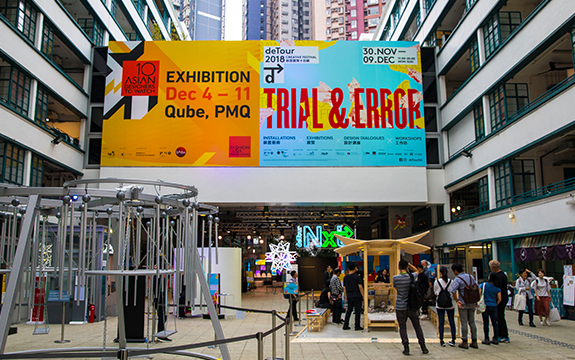
In Summary
- School of Design’s expertise on show at Urban Futures Lab
- Public and participatory spaces designed for people to explore and contribute
Swinburne School of Design was an integral partner to Melbourne’s world-class design expertise on show at Hong Kong Business of Design Week (BoDW) late last year. Swinburne’s Design and the City: Urban Futures Lab exhibition and studio, at the BoDW deTour Creative Festival was a space where multiple activities came together.
The lab was initiated by Dr Samantha Edwards-Vandenhoek, Deputy Chair of Communication Design and Digital Media Design with the support of government funding, and was coordinated by Bridgette Engeler, Course Director, Master of Design.
It was conceived as a working studio space to host a Master of Design Study tour, a participatory design learning program, a public space where people could explore and contribute, and an exhibition space for Swinburne student work.
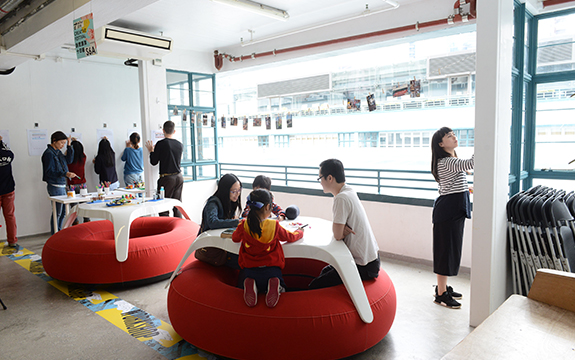 Visitors in the Design and the City: Urban Futures Lab space.
Visitors in the Design and the City: Urban Futures Lab space.
“The space gave us a way to show people design possibilities and how to embark on that journey. Experiential futures are an immersive way to enable people to share in a glimpse of the futures of cities and urban environments. We combined exhibition artefacts and design activities to stimulate conversation and the development of material outcomes related to urban futures in Hong Kong,” says Ms Engeler.
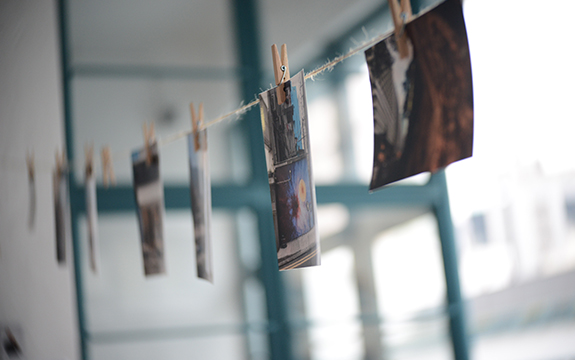 Images on display stimulate conversation.
Images on display stimulate conversation.
The exhibition featured work by undergraduate students from Interior Architecture, Communication Design and Architectural Design at Swinburne. Exhibits explored materiality and form in architecture; and the notion of individual versus collective identity in a changing world challenged by digital technologies.
Honours student projects predicted what living in Melbourne might be like, fifty years from now, and explored how to influence change using experience and desire as a basis for engagement.
“deTour is an intrinsic part of BoDW. The theme for 2018 was Trial and Error. This has a significant connection to design practice, the iterative zine-making process, and the exploratory nature of the study tour and experiential design futures work. It was a reflection of participatory public design and being able to adapt to input as it happens,” says Ms Engeler.
Dr Sam Edwards-Vandenhoek led Cut and Try, a public full day zine design workshop. Participants were taken through a series of rapid iterative process exercises and creative experiments to visualise their city (or future city) through eight senses of their choice (touch, taste, sound, smell, memory, dream or imagination). These experiments were used to create final imagery and narrative for a small collaborative magazine and digital Instagram zine.
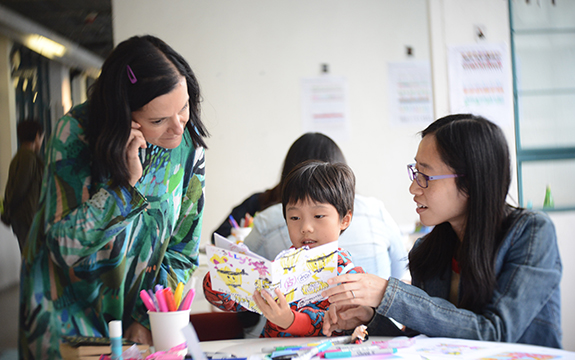
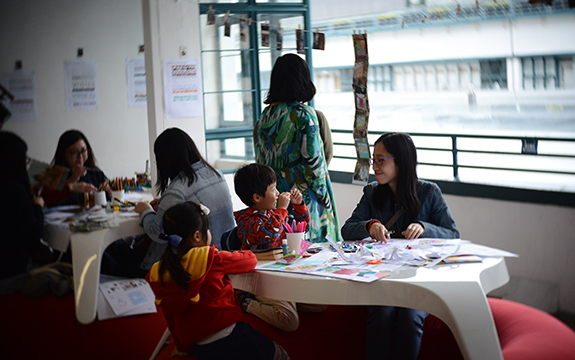 Dr Samantha Edwards-Vandenhoek leads the Cut and Try zine design workshop.
Dr Samantha Edwards-Vandenhoek leads the Cut and Try zine design workshop.
A zine making workshop connected Hong Kong locals with their city in new ways.
A zine making workshop connected Hong Kong locals with their city in new ways.
“The DIY aesthetic of zine making encourages risk taking and playfulness. The focus of the workshop was to humanise creativity, personal experience and to normalise failure through self-expression in design,” says Dr Edwards-Vandenhoek.
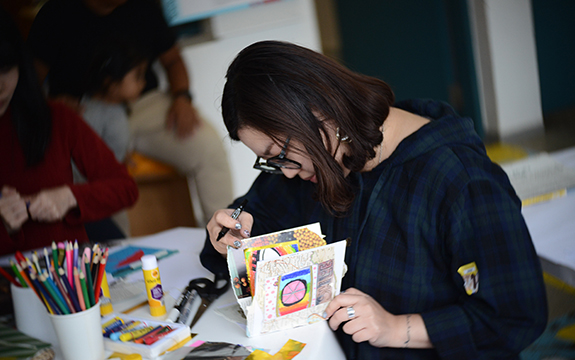
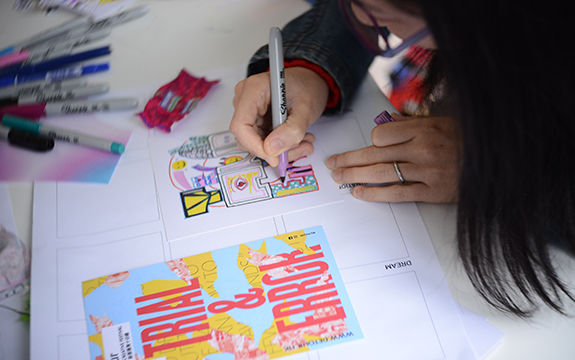
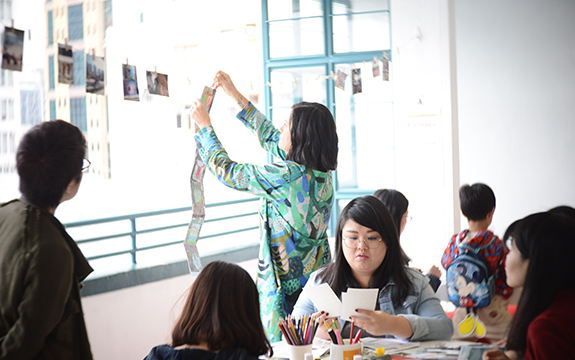 Visitors at the Cut and Try zine design workshop.
Visitors at the Cut and Try zine design workshop.
As part of the design study tour, futures-oriented design artefacts for Hong Kong fifty years from now have been created by postgraduate students from Swinburne.
“The tour program advances the role of design in shaping the future and resilience of cities through innovative and sustainable approaches to urban-based practice. Working in a small interdisciplinary team, students learn to understand and respond to local social and cultural issues through observation, exploration and critical analysis of designed objects, spaces and systems in a Hong Kong neighbourhood,” explains Ms Engeler.
“The program provides opportunities for contextualisation through experimentation, testing and incubation, presentation, dialogue, and community building,” she adds.

